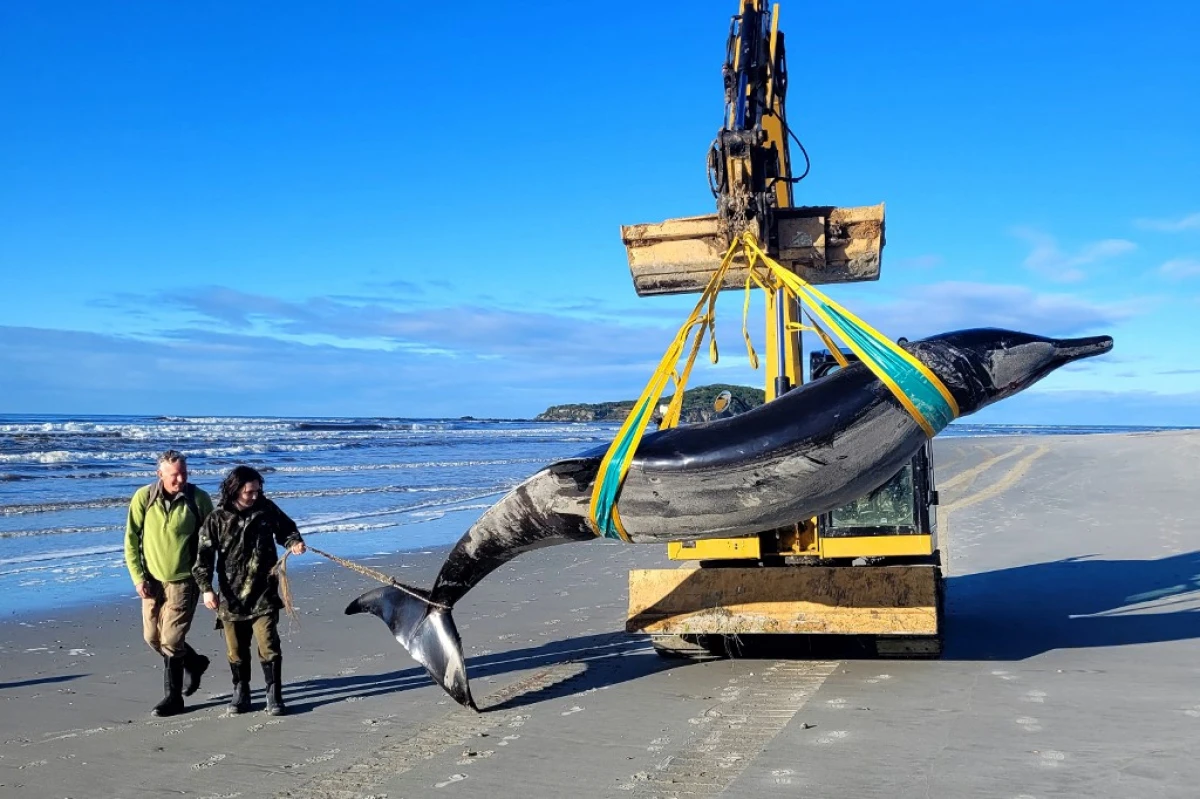
New Zealand authorities have found the nearly intact carcass of what appears to be a Bahamonde beaked whaleconsidered the most unknown cetacean in the world and of which a live specimen has never been seen, on a beach in the southeast of the country.
>>> We recommend you read: Man killed a poisonous snake by biting it: why did he do it?
The New Zealand Department of Conservation said in a statement that they were informed on July 4 of the discovery of the animal, about 5 meters long, on the beach of Otago and that it is believed to be a specimen of the mysterious whale, although they are awaiting confirmation from DNA analysis.
Bahamonde’s beaked whales (‘Mesoplodon traversii’ or ‘bahamondi’), also known as Travers’s beaked whales or Bahamonde’s beaked whales, are distinguished by their elongated snouts, prominent teeth, and dolphin-like shape.
“Beaked whales are one of the least known large mammal species of the modern era”said Gabe Davies, head of operations for the Department of Conservation in Otago, in the statement dated Monday.
“Since the 19th century, only six specimens have been documented worldwide, and all but one came from New Zealand. From a scientific and conservation perspective, this is huge,” he added.
Authorities indicated that The whale samples have been sent to the University of Auckland and that DNA results can take weeks or months.
These beaked whales live in very deep waters and feed on squid and other animals, although Almost nothing is known about its behavior as a live specimen has never been sighted.
The first findings of the Bahamonde beaked whale
This species was first described in 1874 following the discovery of a lower jaw and two teeth two years earlier in the Chatham Islands.south of New Zealand.
Skeletal remains found in 1986 on Robinson Crusoe Island (Chile) confirmed the discovery of the new species, which owes part of its name to the Chilean marine biologist Nibaldo Bahamonde.
In this sense, the species is known as ‘Mesoplodon traversii’, in honor of New Zealand naturalist Henry Hammersley Travers, or ‘Mesoplodon bahamondi’.
For years, scientists relied only on skull and skeletal remains to identify these Bahamonde beaked whales, but in 2010 and 2017, dead but nearly intact specimens were found in different locations in New Zealand.
This recent discovery on Otago beach will help us learn more about this mysterious cetacean.
>>> You may be interested in: White-headed marmoset: this is the primate that only lives in Colombia and looks like Einstein
Source: https://www.noticiascaracol.com/mundo/ballena-mas-rara-del-mundo-es-hallada-muerta-en-una-playa-de-nueva-zelanda-cb20


